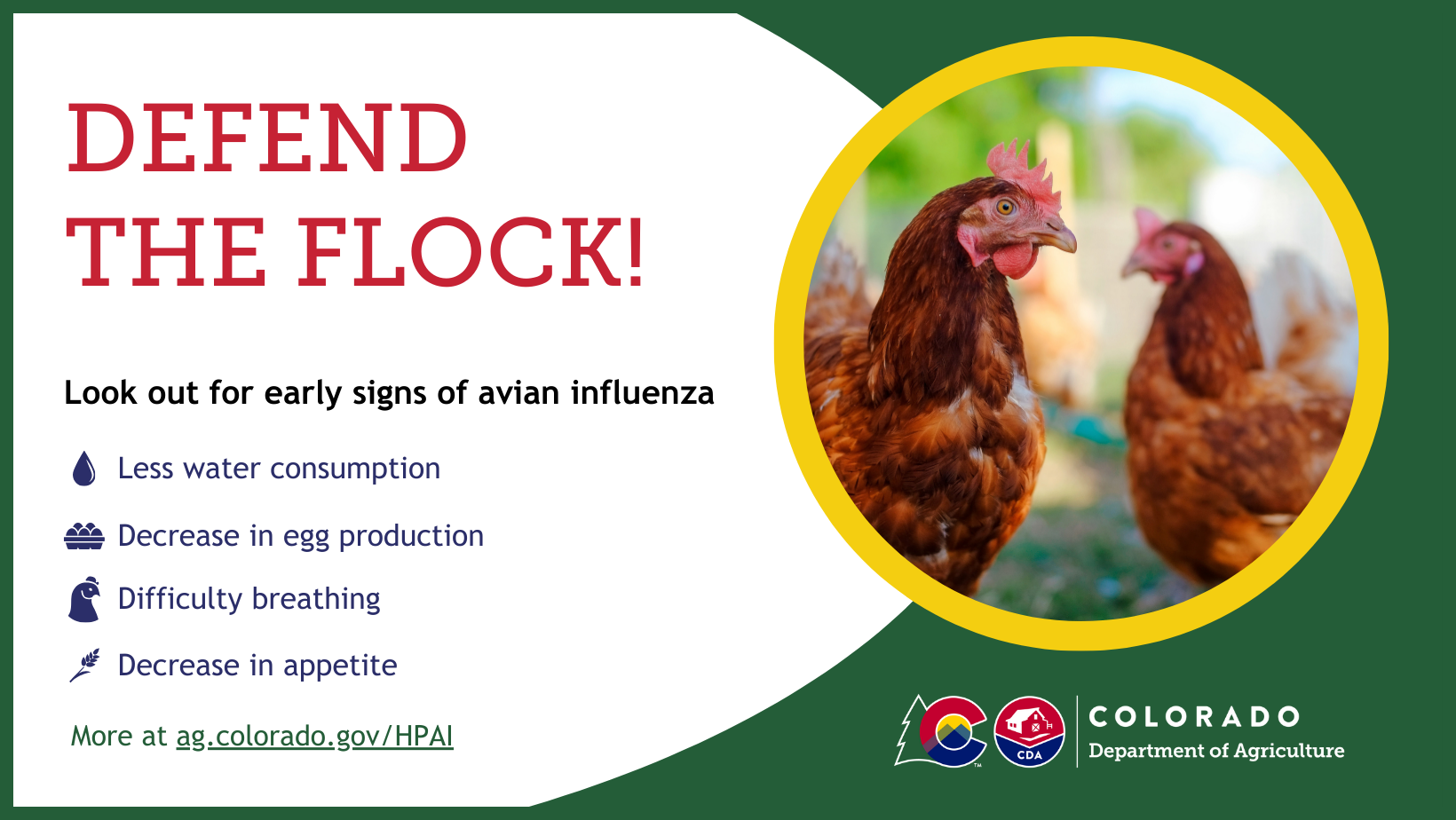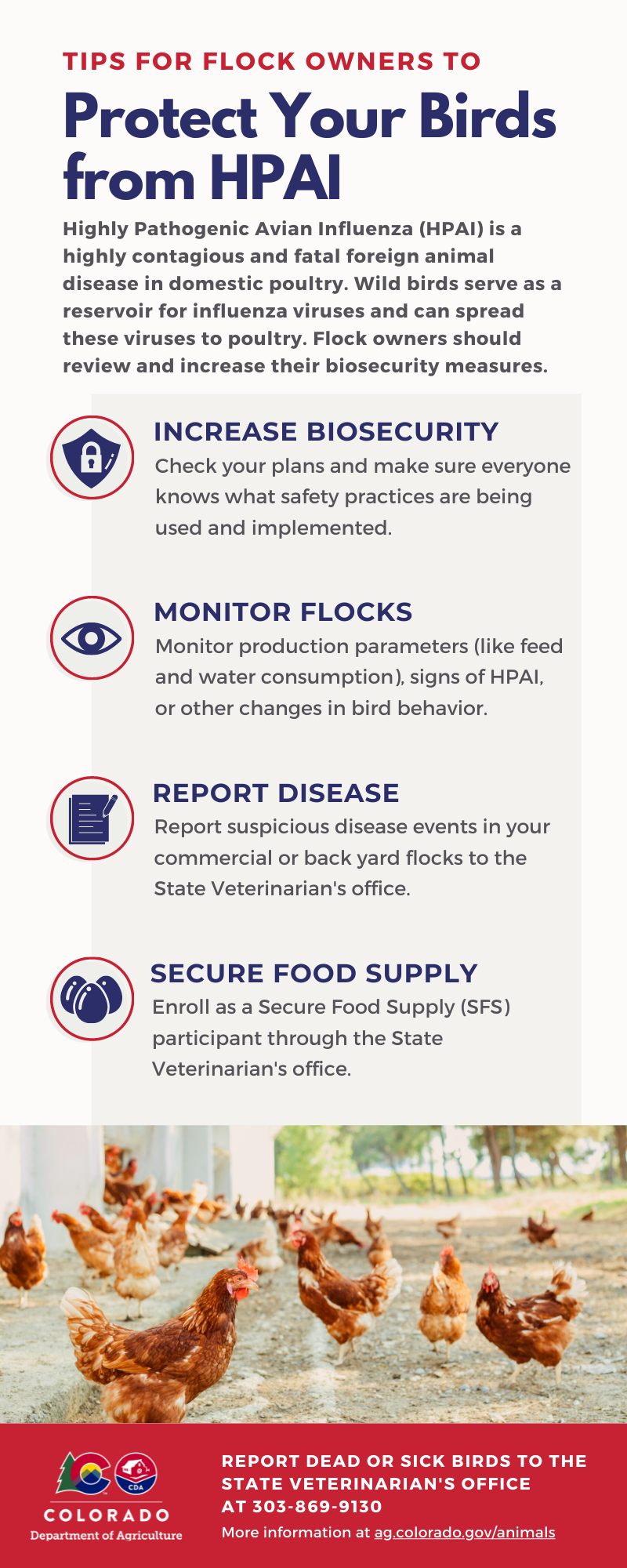Avian Influenza
Avian Influenza (AI) is an infectious viral disease of birds (especially wild waterfowl such as ducks and geese), often causing no apparent signs of illness. AI viruses can sometimes spread to domestic poultry and cause large-scale outbreaks of serious disease. Some of these AI viruses have also been reported to cause disease or subclinical infections in humans and other mammals.
AI viruses are divided into two groups based on their ability to cause disease in poultry: high pathogenicity (HPAI) or low pathogenicity (LPAI). HPAI results in high death rates (up to 100% mortality within 48 hours) in some poultry species. LPAI also causes outbreaks in poultry but is not generally associated with severe disease.
As of February 2022, Highly Pathogenic Avian Influenza (HPAI) has been detected in wild birds and poultry across many eastern states. USDA has published all detections of HPAI in poultry and wild birds on the APHIS website.

Report sick domestic birds or unusual bird deaths
To report sick birds or birds that have died from unknown causes, please call:
- Colorado State Veterinarian’s Office (303) 869-9130, or
- USDA-Veterinary Services Colorado Office (303) 231-5385, or
- Avian Health Hotline at Colorado State University (CSU): (970) 297-4008
Dead birds
Submit to the CSU Veterinary Diagnostic Laboratory in Fort Collins for HPAI Testing: (970) 297-4008 or (970) 297-1281
Dead wild birds
If you find three or more dead wild birds in a specific area within a two week period OR if you see live birds showing clinical signs of disease, please contact your local Colorado Parks and Wildlife office.
Veterinarians and backyard, hobby, and commercial producers should report any suspicious disease events in poultry flocks to the State Veterinarian’s using this form.
Backyard bird owners
Domestic bird owners should take extra precautions to avoid introducing the HPAI virus to their flocks, including:
- preventing interaction between domestic and wild birds,
- keeping food and water sources away from migrating birds,
- and monitoring flocks for signs of illness or death.
Pet Owners
Learn more about how other animal species, including companion animals, are impacted by avian influenza on the HPAI outbreak page.
Ag Workers
The safety of our agricultural workers is of critical importance. If you or someone you know works in the poultry or dairy industry, please take advantage of the free protective personal equipment (PPE) available through CDPHE.
